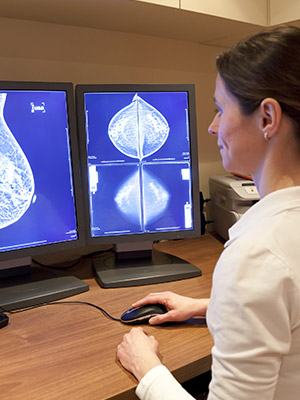It is common for doctors and other providers to order CT or MRI scans and we sometimes take these medical marvels for granted. Medical imaging has dramatically changed the way that medicine is practiced, and has made the detection, prevention, and treatment of diseases much more effective and efficient. Just how has medical imaging impacted the way medicine is practiced, and how has this helped our patients?
Reduces or Eliminates Exploratory Surgery
Before the advent of x-rays, there was really no way to see what was going on inside of a patient short of opening the patient up through surgery with its risk of pain and complications. X-rays allowed a doctor better to see what was going on inside the body before defaulting to surgical exploration. When Wilhelm Conrad Roentgen discovered x-rays in 1895, the medical world immediately saw the usefulness of imaging and embraced it as a great alternative to exploratory surgery.
Makes Diagnosis More Accurate
There are certain surgeries, such as an appendectomy, that traditionally have had a high incidence of misdiagnosis. Only when the surgeon is able to see the appendix (and usually remove it) can they tell whether the patient truly had appendicitis. Ultrasound and CT scans have reduced the negative appendectomy rate (where the patient ends up not having appendicitis) and the number of unnecessary admissions to the hospital for observation. This not only saves the patient from having to undergo an unnecessary surgery, but there are significant cost savings as well from having an MRI or CT scan. The same holds true for most of the body. What was often an educated guess into the medical problem has now become an accurate depiction of what has gone awry.
Early Detection
Medical imaging is also useful for early detection of many different diseases and can reveal hidden conditions which may not have caused symptoms for years. Screening Lung CT scans can find tumors the size of a grain of rice and can reduce lung cancer deaths with early detection. X-rays, Sonography (ultrasound) MRIs, and CT scans can all be used to detect cancer in various places in the body. The detection of breast cancer has undergone many advances over the years with modern digital imaging, increasing the ability to detect breast cancer even earlier.
Pregnancy and Childbirth
Sonography (ultrasound) has allowed obstetricians and other physicians a look into the growth and development of the fetus. Ultrasounds can be used to monitor the heart rate of the baby and look at the vital organs for any signs of concern. Ultrasound can reveal the sex of the baby and can help estimate the due date, both important to the baby’s parents. 3D and 4D ultrasound of the preborn allow pictures which become treasured keepsakes. Other conditions, such as placenta previa, can be life-threatening to the mother and child and ultrasound can reveal and track these conditions. Ultrasound can also help physicians prepare for the delivery of the baby and can reveal his/her placement, such as breech (bottom down), and whether C-Section may be necessary.
Helps Guide Procedures
Many invasive procedures utilize medical imaging to guide catheter or needle placement. Ultrasound can be used for real-time guidance of central venous catheters and can reduce costs, decrease complications, reduce treatment time, and help speed recovery. Medical imaging, like CT scans and MRIs, can also alter treatment plans, and help determine which patients will benefit from certain medications. Medical imaging can help reduce the need for surgical biopsies and guide the radiologist in performing needle biopsies.
Helps Monitor Progress
After surgery or other forms of treatment, imaging can be used to monitor a patient’s progress. Tumor growth can be tracked over time, and medical imaging can reveal whether the radiation or drugs a patient is using are working. Medical imaging is extremely important in managing certain chronic illnesses and ensuring that positive progress is being made.
Whenever you need an MRI, an ultrasound, or anything in between, you can trust the services at Touchstone Imaging to take care of your needs. Contact our team today to schedule an appointment—we look forward to seeing you!



